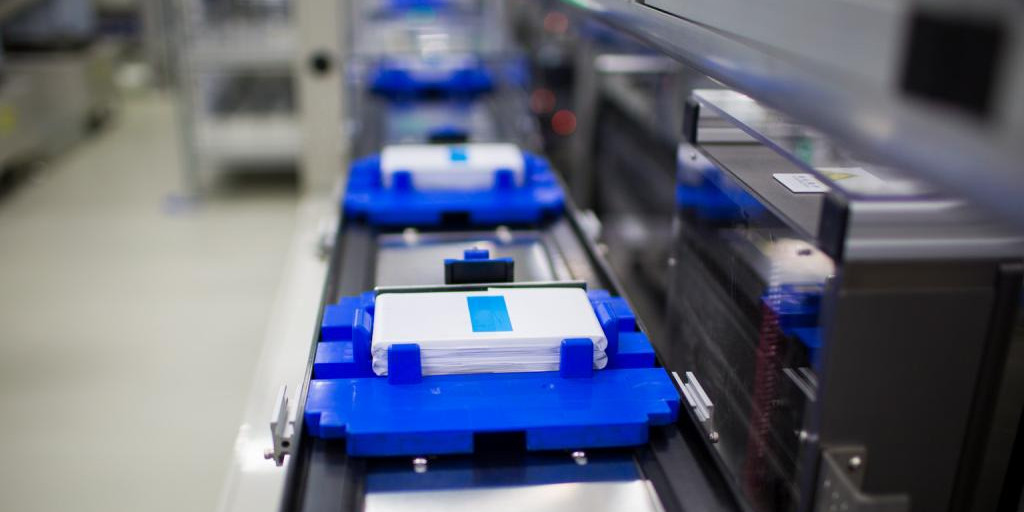At the Friends of Industry conference in Paris this week, European economic ministers signed a seven-page statement which aims to accelerate battery cell production in the bloc. Ministers from France, Austria, Croatia, the Czech Republic, Estonia, Finland, Germany, Greece, Hungary, Italy, Latvia, Luxembourg, Malta, the Netherlands, Poland, Romania, Slovakia and Spain all endorsed the plan.
The statement sets out four core objectives to realize battery cell production. Firstly, the signatories agreed a new commission be put in place to propose an ‘ambitious and comprehensive’ industrial strategy to be reached by 2030, with a focus on reducing regulatory burdens for small and medium sized enterprises.
The ministers also agreed that by early next year, strategic value chains for the European market should be identified within the Strategic Forum for Important Projects of Common European Interest (IPCEI). The aim would be to prioritize technologies eligible to fight climate change, such as electric batteries, autonomous vehicles, semiconductors, low carbon industrial processes and net zero energy building renovations.
Thirdly, the signatories said goals should be realized through new policies for competition, research and innovation, digitalization and the single market. These would include new norms and standards for regional development, international trade, energy and sustainability development. Additionally, the ministers foresee the role of financial tools and highlight their preference for using the next Multiannual Financial Framework, particularly for research and development, the IPCEI framework and the InvestEU program, as well as structural funds.
France to follow Germany's lead
Finally, the ministers reiterated the role of competitiveness in the project and will seek to involve the Competitiveness Council to steer European policies that benefit the industry.
On the technology side, the statement highlighted a focus on “disruptive innovation,” which should receive financing through EU channels, with artificial intelligence and electric mobility core objectives.
Popular content
The importance of European battery manufacture was further emphasized by a statement by the embattled French government that it will provide substantial support to the industry, following Germany's decision to dedicate €1 billion to the drive.
In the separate statement, German Minister for Economic Affairs Peter Altmaier, and French counterpart Bruno Le Maire again outlined the roles of the IPCEI framework and competition.
Sodium-ion promise
In October, the University of the West of England produced a report on battery sustainability for the European Commission that found widespread environmental and social problems related to the raw materials used in the current generation of batteries.
The report examines resource availability, toxicity, safety, production, and recycling and disposal impacts. Addressing the composition of electrodes is a crucial problem to resolve to meet enhanced eco-political targets, the report's authors said. On resource availability, the researchers concluded that while shortages would become an issue in future – for some materials – it would not be a problem in the near or medium-term.
The researchers claimed sodium-ion batteries were “without a doubt” the most appealing alternative to lithium-ion systems as sodium is highly abundant and not associated with geopolitical issues. Sodium-ion batteries post a lower energy density than lithium-ion, but the West of England researchers were confident significant progress is feasible. In that vein, they cited the European Strategic Energy Technology Plan for batteries, which also highlighted the potential of sodium-ion.
This content is protected by copyright and may not be reused. If you want to cooperate with us and would like to reuse some of our content, please contact: editors@pv-magazine.com.



What is an SME?
Small or Medium-sized Enterprise.
The reference to “disruptive innovation” is a bad sign for the seriousness of the initiative. One, disruption is only a good thing when the model being challenged is bad, like burning coal for electricity. Pursuing disruption for its own sake is ridiculous business-school b/s. Second, really disruptive innovations are rare: the first digital computers, the first integrated circuits, the first smartphone. Most innovations, like most advances in scientific knowledge, are incremental steps within settled paradigms. The solar panels being made today are just evolutionary progress on the pioneer cells of the 1950s.